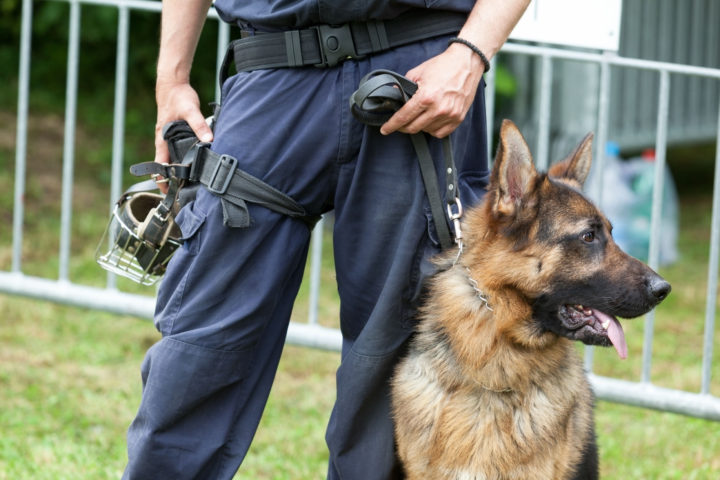
Whether or not police can use a drug dog without a warrant is a common question in criminal investigations. In Oklahoma and across the United States, law enforcement commonly uses drug-sniffing dogs. However, their legality depends on several factors, including the location of the search, whether police have reasonable suspicion, and whether the individual has a legitimate expectation of privacy in the area searched.
Public Spaces and Traffic Stops
One of the most common scenarios involving the use of drug dogs without a warrant is during traffic stops. In general, the U.S. Supreme Court has held that police can use drug-sniffing dogs during lawful traffic stops without needing a warrant, as long as the use of the dog does not extend the stop beyond the time necessary to handle the original reason for the stop (such as checking a driver’s license or issuing a citation). However, if police detain the driver longer just to wait for the drug dog, this could be an unlawful search.
Homes and Private Property
The use of drug dogs on private property without a warrant is a different matter. The U.S. Supreme Court has consistently ruled that homes and curtilage (the area immediately surrounding a home) have a heightened level of protection under the Fourth Amendment. This means that police cannot bring a drug dog onto someone’s property, such as a front porch, to conduct a search without first obtaining a warrant or having an established exception to the warrant requirement.
Reasonable Suspicion and Public Places
In public places, such as airports, bus stations, or schools, police often use drug dogs without a warrant. Courts generally find that individuals have a lower expectation of privacy in public spaces, allowing police more leeway for drug dogs.
However, the use of drug dogs in public places still requires reasonable suspicion in many instances. For example, if police are conducting a search of a person’s luggage at an airport, they typically need reasonable suspicion to conduct the search. But, if the search occurs during routine security procedures, courts allow the use of drug dogs without suspicion of illegal activity.
What Happens if a Drug Dog Alerts?
If drug dogs alert narcotics during a search, this typically provides police with probable cause to conduct a warrantless search. In any situation where a drug dog is lawfully used, the dog’s alert can justify further investigation.
However, it’s important to note that drug dogs are not always accurate. False alerts have occurred, and this can raise questions about the reliability of the search and the evidence obtained. If a defendant proves the alert was unreliable, they can challenge the search’s legality and potentially suppress any evidence found.
Exceptions to Warrant Requirements
While the Fourth Amendment generally requires a search warrant, several exceptions allow police to use drug dogs without a warrant. Most importantly, if someone voluntarily consents to a search, police do not need a warrant or reasonable suspicion.
If drugs or contraband are in plain sight, police can seize the evidence without a warrant and may use a drug dog. In situations where there is an immediate threat to public safety or is the potential for destruction of evidence, police may be able to use a drug dog without first obtaining a warrant.
Tulsa Criminal Lawyers
Police can use drug dogs without a warrant in specific situations, such as during lawful traffic stops or with consent. However, there are limits on their use on private property, where individuals have a higher expectation of privacy. If a drug dog alerts to the presence of drugs, this typically provides probable cause for a search. Despite this, the legality of the search may be challenged if the search was conducted unlawfully.
If you’re facing charges, call our team at Tulsa Criminal Lawyers Law Firm at (918) 416-0358 or contact us online.
